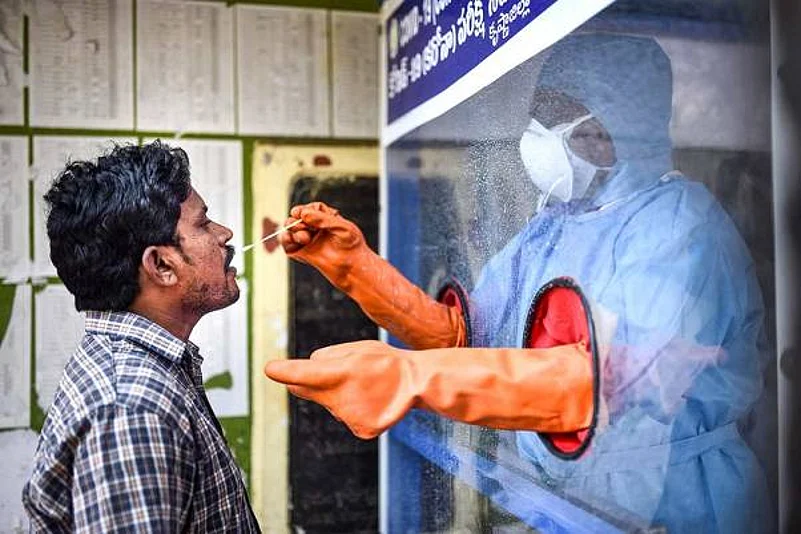To battle the new and emerging mutations of the novel coronavirus, scientists have developed a new method by using artificial intelligence (AI). This new technique shall help in quickly develop new vaccines and zero in on the best potential preventives.
Described in the journal Scientific Reports, this new method can easily identify the potential mutations of the virus and can ensure the pinning down the best possible vaccines in a quick and hassle-free way.
The machine-learning model can accomplish vaccine design cycles that once took months or years in a matter of seconds and minutes, according to the researchers from the University of Southern California (USC) in the US.
"This AI framework, applied to the specifics of this virus, can provide vaccine candidates within seconds and move them to clinical trials quickly to achieve preventive medical therapies without compromising safety," said Paul Bogdan, associate professor at USC.
"Moreover, this can be adapted to help us stay ahead of the coronavirus as it mutates around the world," said Bogdon, the corresponding author of the study.
When applied to SARS-CoV-2, the virus that causes COVID-19, the computer model quickly eliminated 95 per cent of the compounds that could have possibly treated the pathogen and pinpointed the best options.
The AI-assisted method predicted 26 potential vaccines that would work against the coronavirus.
From those, the scientists identified the best 11 from which to construct a multi-epitope vaccine, which can attack the spike proteins that the coronavirus uses to bind and penetrate a host cell.
Vaccines target the region -- or epitope -- of the contagion to disrupt the spike protein, neutralising the ability of the virus to replicate.
Using the method, engineers can construct a new multi-epitope vaccine for a new virus in less than a minute and validate its quality within an hour.
By contrast, current processes to control the virus require growing the pathogen in the lab, deactivating it and injecting the virus that caused a disease.
The process is time-consuming and takes more than one year; meanwhile, the disease spreads.
The researchers noted that the method is especially useful during this stage of the pandemic as the coronavirus begins to mutate in populations around the world.
Some scientists are concerned that the mutations may minimise the effectiveness of vaccines by Pfizer and Moderna.
Recent variants of the virus that have emerged in the UK, South Africa and Brazil seem to spread more easily.
The researchers said that if SARS-CoV-2 becomes uncontrollable by current vaccines, or if new vaccines are needed to deal with other emerging viruses, then their new AI-assisted method can be used to design other preventive mechanisms quickly.
For example, the scientists used only one B-cell epitope and one T-cell epitope, whereas applying a bigger dataset and more possible combinations can develop a more comprehensive and quicker vaccine design tool.
The study estimates the method can perform accurate predictions with over 700,000 different proteins in the dataset.
"The proposed vaccine design framework can tackle the three most frequently observed mutations and be extended to deal with other potentially unknown mutations," Bogdan added.
With PTI Inputs

























